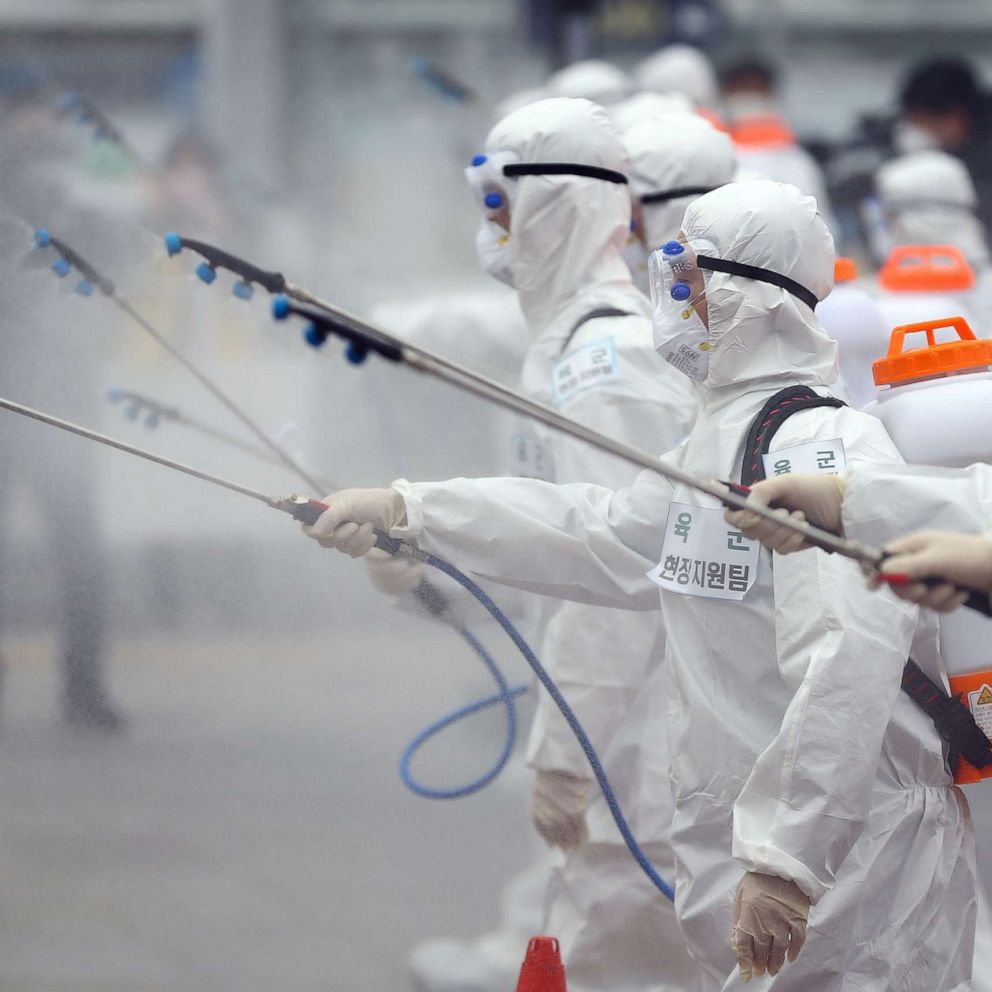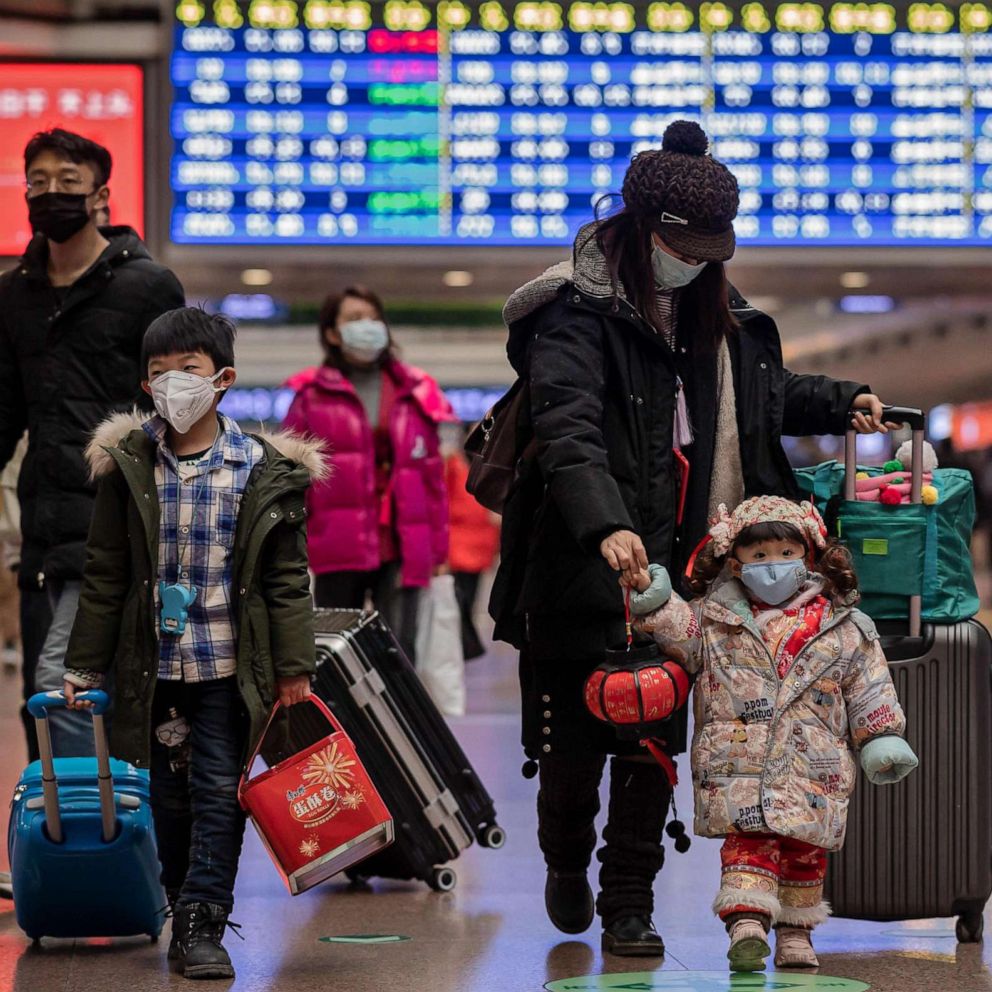Coronavirus government response updates: Ousted vaccine chief testifies 'Americans deserve the truth'
Rick Bright, ousted vaccine chief, tells Congress his warnings were ignored.
Rick Bright, the ousted vaccine development chief who claims he was retaliated against for opposing the broad use of hydroxychloroquine to treat the novel coronavirus that President Donald Trump pushed repeatedly, told House lawmakers Thursday that lives were lost because of delays and missteps in the federal government's response to the pandemic.
The immunologist, who has worked in government for 25 years and was moved from the Biomedical Advanced Research and Development Authority to the National Institutes of Health, told the House Energy and Commerce Subcommittee on Health that, without a ramped up response moving forward, the U.S. will see the "darkest winter in modern history."
"Americans deserve the truth," he told lawmakers. "Lives were endangered, and I believe lives were lost."
Bright said Trump administration officials knew that critical medical equipment would be in short supply at the start of the year, but each time he warned someone, including Health and Human Services Secretary Alex Azar, Bright was "met with indifference."
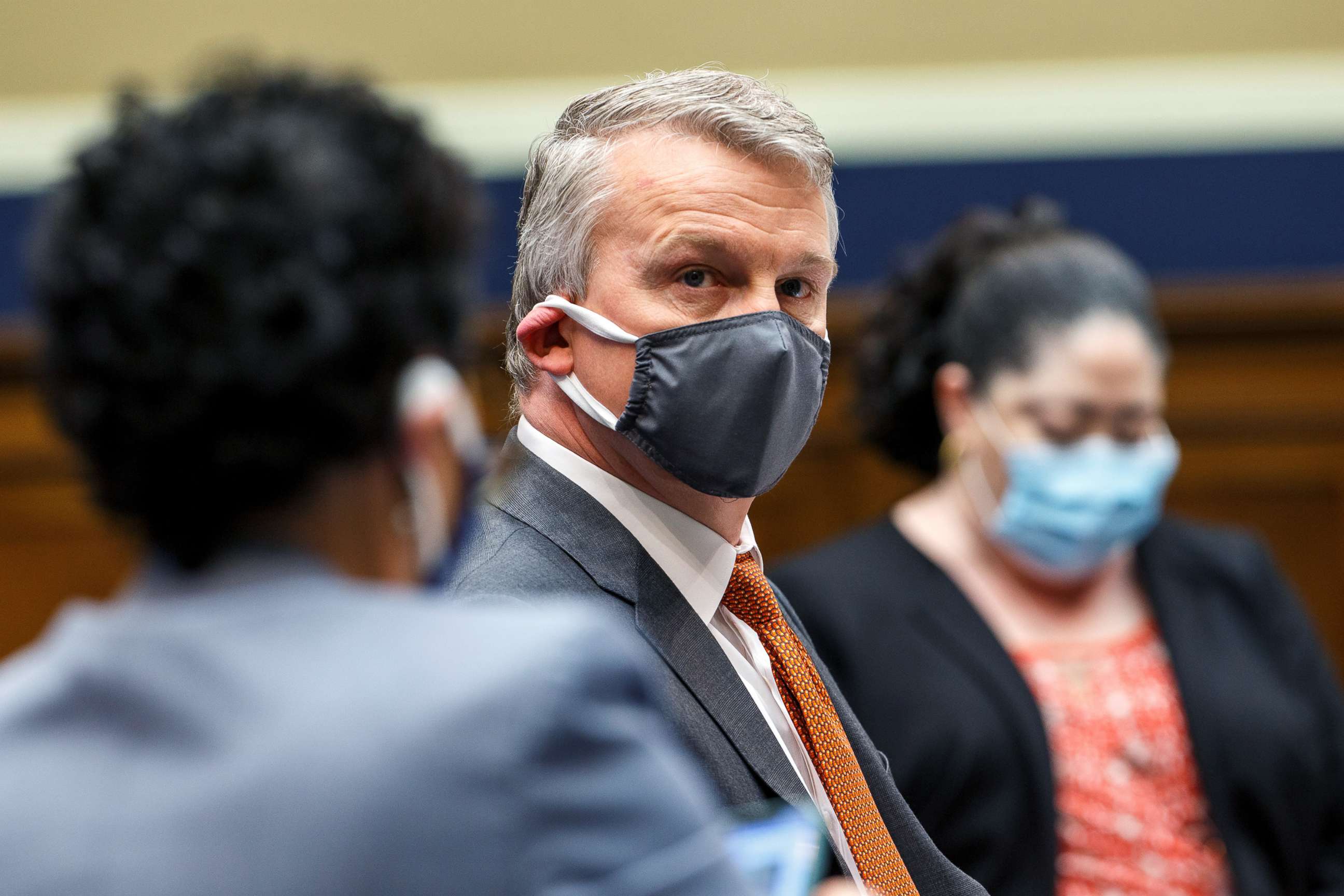
Before and during the testimony, President Trump fired off attacks on Bright. His comments come one day after the president also publicly rejected the advice another top scientist, Dr. Anthony Fauci, on how cautious governors and local officials need to be when reopening schools amid the pandemic.
Trump on Thursday traveled to a medical distribution facility in the Allentown, Pennsylvania, area -- with Azar close to his side -- as the president's ramps up his push to reopen the country, with an eye on battleground states that could prove key to his re-election.
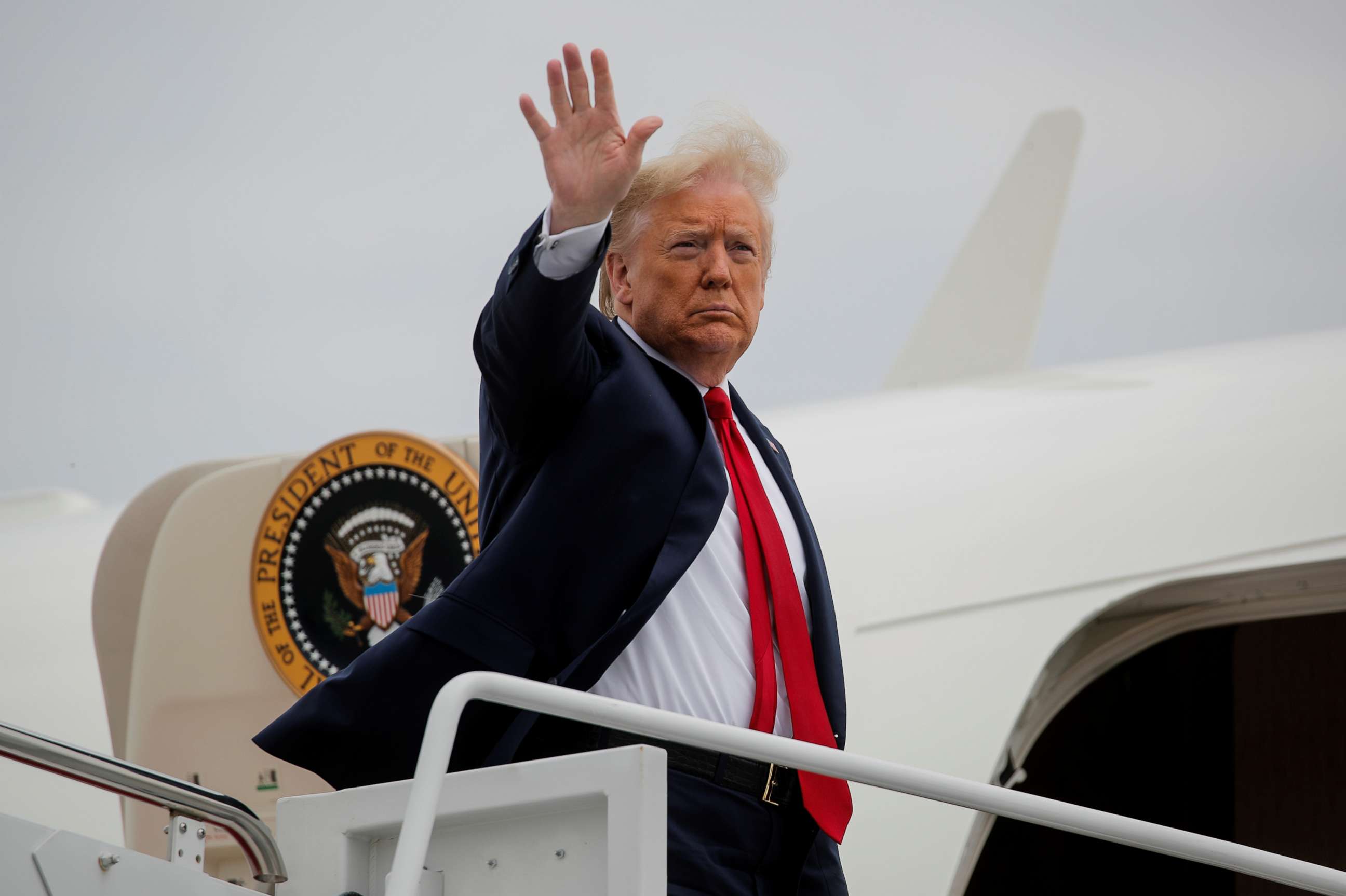
Tune into ABC at 1 p.m. ET and ABC News Live at 4 p.m. ET every weekday for special coverage of the novel coronavirus with the full ABC News team, including the latest news, context and analysis.
Here are Thursday's most significant developments in Washington:
- After delay, CDC releases new guidance on how states can safely reopen
- Trump traveled to Pennsylvania to tour the Owens & Minor, Inc. Distribution Center
- Former agency head who oversaw production of a coronavirus vaccine testifies before the House Energy and Commerce Committee's Subcommittee on Health
- Trump says 'we have to get the schools open' and that Fauci is playing 'all sides of the equation'
- House Democrats to vote Friday on new $3T relief bill with aid to states, direct payments to Americans
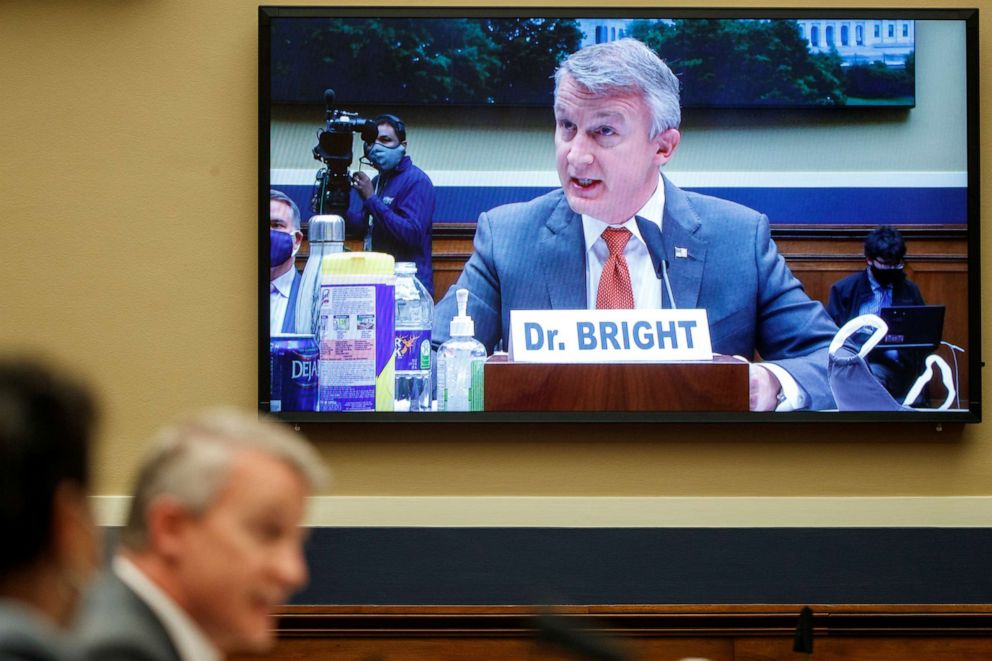
Trump, with Azar beside him, attacks Bright over House testimony
As he departed for Pennsylvania Thursday, President Trump, with Health and Human Services Secretary Alex Azar by his side, said he watched some of Bright's testimony but dismissed his accusations and attacked his character.
"I watched this guy for a little while this morning. To me, he is nothing more than a really disgruntled, unhappy person," Trump said of Bright. "There are a lot of people that do not like the job he's in. I don't know him, I never met him, I don't want to meet him, but I watched him, and he looks like an angry, disgruntled employee who, frankly, according to some people, didn't do a very good job."
Azar, Bright's former superior, also blasted the federal employee to reporters.
"Everything he's complaining about was achieved. Everything he talked about was done," Azar said. "Oh, and, by the way, whose job was it to actually lead the development of vaccines? Dr. Bright. So, while we're launching Operation Warp Speed, he's not showing up for work to be part of that. So, this is like somebody who was in a choir and is now trying to say he was a soloist back then."
While the secretary implied Bright wasn't putting in the work, Bright said moments before that he was removed from meetings after voicing his concerns.
"I was told that my urgings were causing a commotion and I was removed from those meetings," Bright said earlier.
"His allegations do not hold water. They do not hold water," Azar continued. "He looks like an angry, disgruntled employee who, frankly, according to some people, didn't do a very good job."
Trump once again touted the drug hydroxychloroquine, citing anecdotal evidence, while Bright continues to stress to House lawmakers his concerns with the drug, noting it is still unproven effective to treat COVID-19 patients.
"We have had some great response in terms of doctors writing letters, and people calling on the hydroxychloroquine. And this guy is fighting it. No reason to fight it. There's no reason," Trump said before boarding Marine One. "But more importantly than that, we have had tremendous response to the hydroxy. We're having great response along with it, and the Z-Pak. So a lot of people have sworn by it."
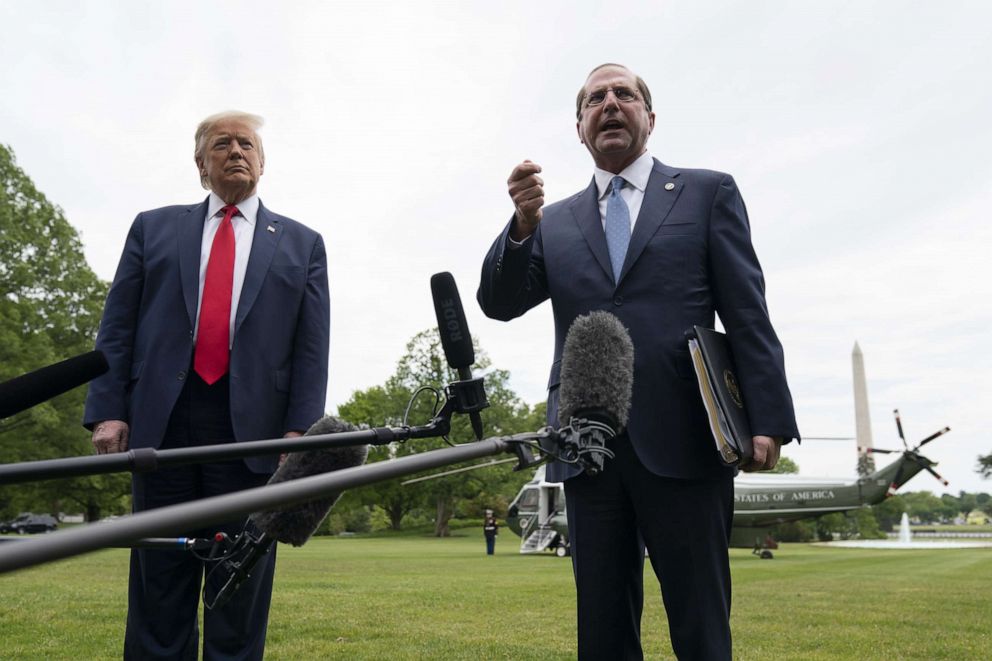
Bright testifies warnings on medical equipment shortages 'met with indifference'
Bright said the government knew that critical medical equipment would be in short supply at the start of the year.
"I began getting alerts from industry colleagues in mid and early and late January, telling me that from the outside view, from the industry view, that the supply chain was diminishing rapidly, telling me that other countries that we relied on to supply many of these masks were blocking export and stopping the transfer of those masks to the United States," he said.
Bright said there were dozens of alerts he passed along to administration officials and with each one, he "was met with indifference."
"Saying they were too busy, they did not have a plan, they did not know who is responsible for procuring those. In some cases, they had a sick child, and they would get back to it later in the week," he added.
Asked about the consequences on the delays, Bright didn't mince words.
"Lives were endangered and I believe lives were lost," he said. "Not only that, we were forced to procure the supplies from other countries without the right quality standards, so even our doctors and nurses in the hospitals today are wearing N95 marked masks from other countries that are not providing the protection that a United States N95 mask would provide. They are not as protected. They're assuming they're protected, but they're not."
In a particularly blunt moment, Bright recalled an email he said he'll never forget, what a colleague said when faced with the severe shortage of personal protective equipment.
"I will never forget the emails I received from Mike Bowen [from Prestige Ameritech, a manufacturer of N95s], indicating we -- our mask supplier, our N95 respirator supply was completely decimated. And he said that we are in deep shit, the world is and we need to act. And I pushed that forward to the highest levels I could in HHS and got no response," Bright said.
"From that moment I knew that we were going to have a crisis for our health-care workers because we were not taking action," Bright continued. "We were already behind the ball. That was our last window of opportunity to turn on that production to save the lives of those health care workers and we did not act."
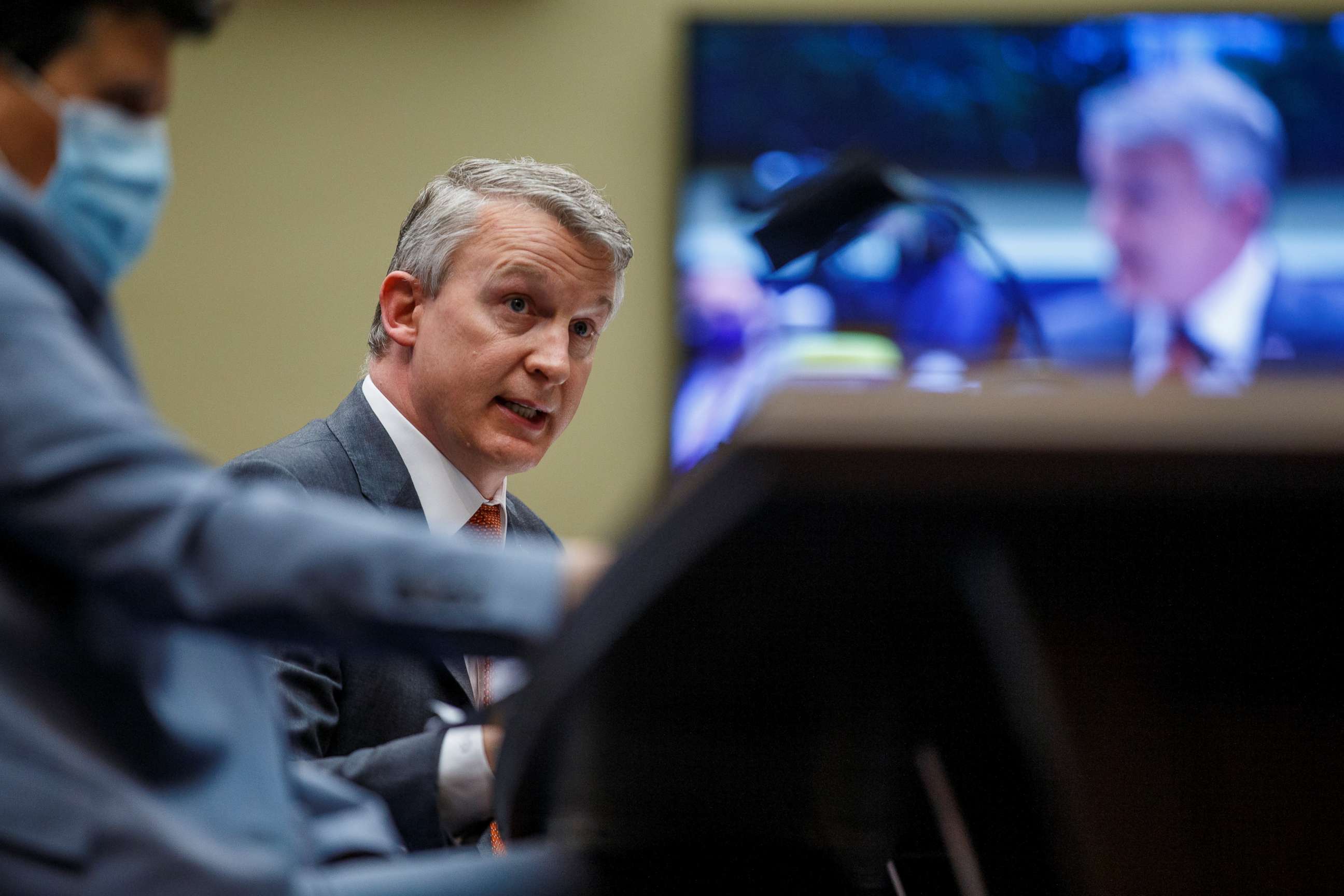
Bright also warned of an inevitable shortage of a vaccine, and what he said was a lack of a plan to fairly and equitably distribute it.
"If you can imagine this scenario this fall or winter or may maybe early next spring when vaccine becomes available, there is no one company that that can produce enough for our country and for the world," Bright said.
"It's going to be limited supplies. We need to have a strategy and plan in place now to make sure we can not only fill that vaccine, make it, distribute it, but administer it in a fair and equitable plan," he said.
Bright also expressed doubt about the 12-18 month estimate for developing a vaccine when Rep. Eliot Engel, D-N.Y., asked him, if he were a betting man, when he would bet that we would have a vaccine.
"I still think 12 to 18 months is an aggressive schedule, and I think it's going to take longer than that to do so," Bright said.
After making a veiled criticism of the lack of a "strong leader," Bright emphasized the need to hear from scientists in the country's continued response and heed their warnings of the dire consequences that will come if public health guidance isn't followed.
"We need to unleash the voices of the scientists in our public health system in the united States, so they can be heard. Their guidance needs to be listened to and we need to be able to convey that information to the American public, so they have the truth about the real risk and dire consequences of this virus. And they have the truth about the consequences of their actions if they don't follow those guidances," Bright said.
"We don't have a single point of leadership right now for this response. And we don't have a master plan for this response. Those things are absolutely critical," he added.
Bright also said he encouraged Congress to ensure that there is oversight of the relief funds made available to help scientists and others respond to the outbreak.
"I'm concerned that they could be misdirected and lost and not put to the right fight," he said.
He also outlined a few "critical" steps the U.S. should take to prepare for the coming winter and possible resurgence of the virus -- highlighting the need for personal protective equipment, ramped up supply chains and a national testing strategy.
"We do not still have enough personal protective equipment to protect our health care workers. We still do not have the supply chains ramped up for the drugs and vaccines. We still don't have plans in place to distribute those drugs and vaccines, and we don't have the comprehensive strategy so Americans know which tests do what, what to do with that information, and how to find the virus, trap it, and kill it," Bright said. "There is a lot of work we still have to do."
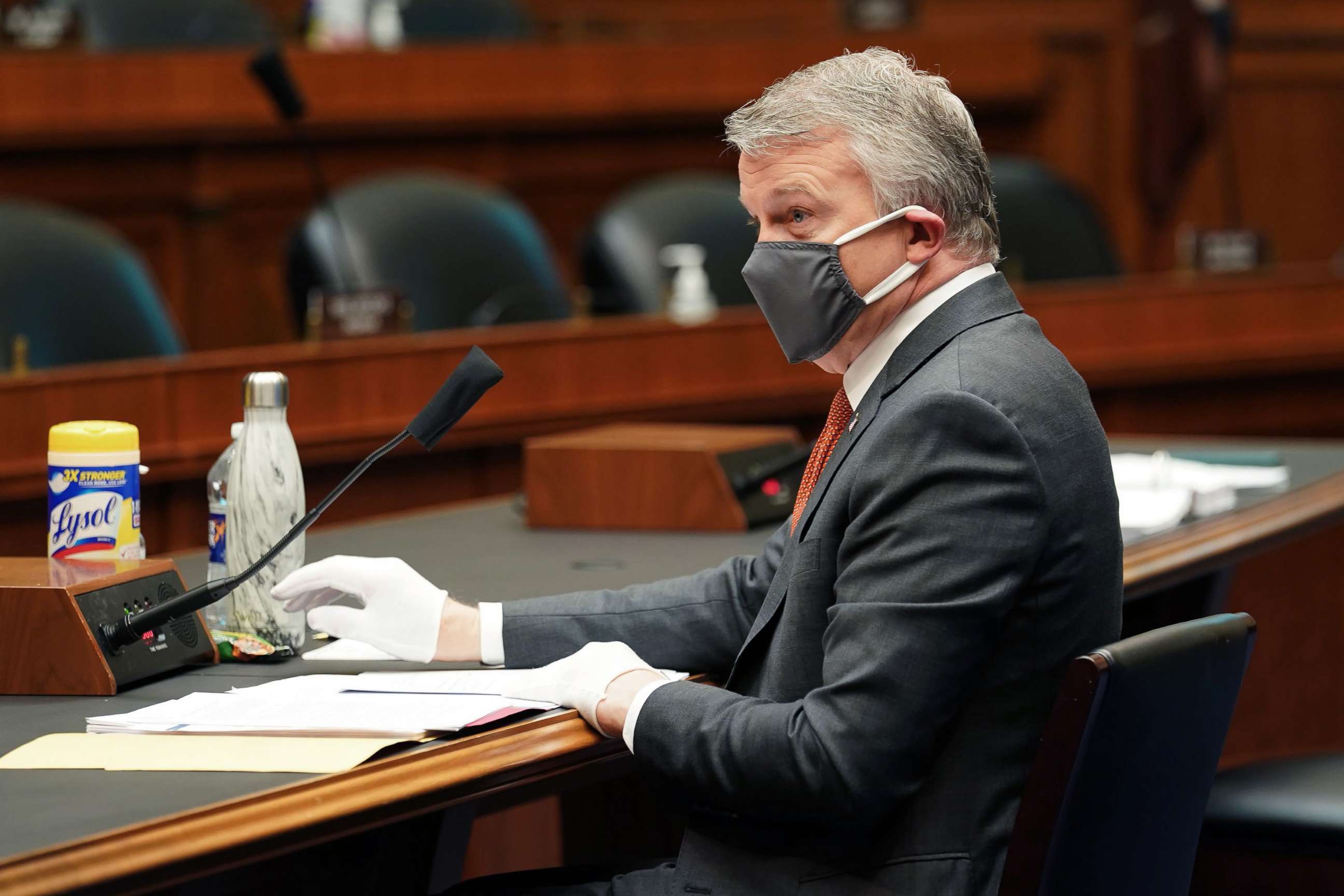
Bright says Azar ignored his concerns on shortage of swabs needed to administer coronavirus tests
Outlining issues with the strategic national stockpile, Bright testified that when he asked officials in the Trump administration for a national inventory of personal protective equipment and supplies to combat the pandemic, he was told there were none.
"It was kind of a surprise to me that the urgent ramped up of the testing did not include full consideration of all the critical supplies needed to support that ramp up of testing, including those materials you mentioned -- swabs, viral transport media buffers, etc.," Bright said. "And I was quite alarmed to learn from sitting behind the CDC Director Redfield that we were going to experience this shortage."
Bright said he raised the issue to Health and Human Services Secretary Alex Azar, but his concerns were dismissed.
"It clearly was not a topic that he wanted to discuss on that day and actually we were rebuffed by him saying that he did not really want to talk about swabs right now," Bright said.
It wasn't until Bright contacted White House trade adviser Peter Navarro that he was able to get the help of the Department of Defense to produce swabs, he claimed.
"I do believe that we should have been doing everything possible placing orders early ramping up supply ramping up production of those critical medical equipment as quickly as possible whether or not that's through the Defense Production Act or other mechanisms. It should have been a high priority," Bright said in later questioning.
Bright also revealed his disbelief when CDC officials shared with him their initial N95 strategy. When asked to describe a February 7 meeting of administration leadership in which he urged the group to focus on securing N95 masks, he said he was informed that members of the group did not believe there was "a critical urgency" to procure the masks.
"They indicated if we notice there is a shortage, that we will simply change the CDC guidelines to better inform people who should not be wearing those masks, so that would save those masks for our health care workers. My response was, I cannot believe you can sit and say that with a straight face. It was absurd," Bright said.
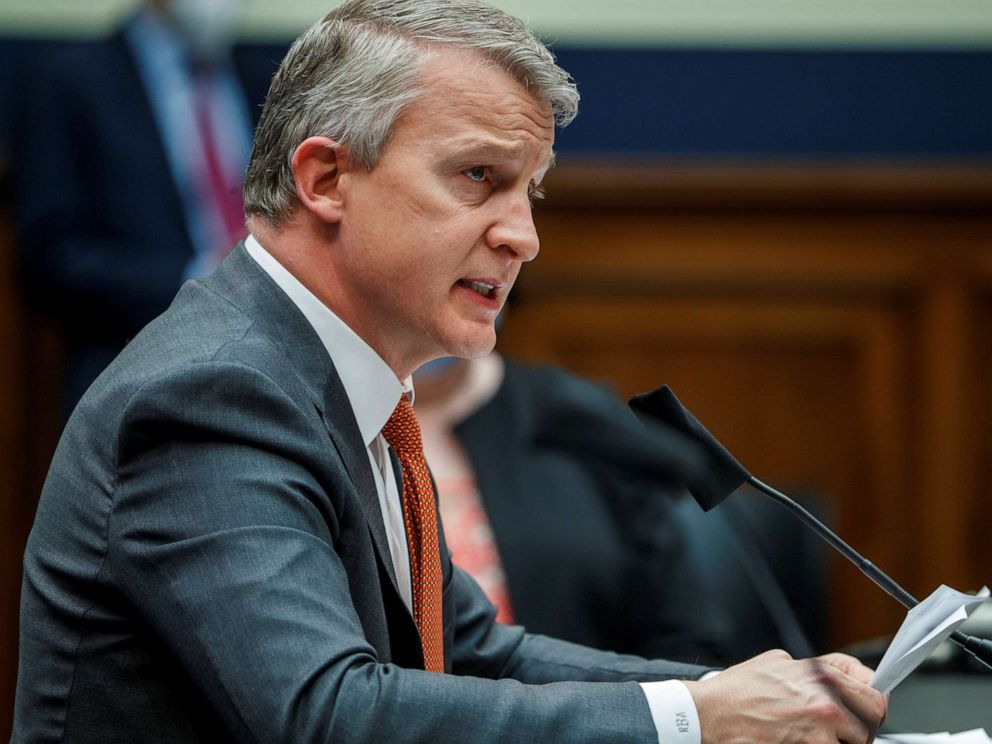
Bright says sharing his concern about hydroxychloroquine was 'the straw that broke the camel's back'
Rep. Eliot Engel, D-N.Y., directly asked Bright if he believed his removal was in part because of his "push back" against the drug hydroxychloroquine, touted by President Trump and his Republican allies, even during Thursday's testimony.
"I believe part of the removal process for me was as initiated because of a push back that I gave when they asked me to put in place an expanded access protocol that would make chloroquine more freely available to Americans that were not under the close supervision of a physician, and may not even be confirmed to be infected with the coronavirus," Bright said.
"When I spoke outside of our government and shared my concerns for the American public that I believed was the straw that broke the camel's back and escalated my removal."
He again expressed his concern that there isn't sufficient data supporting the drug.
"We have a very rigorous scientific review process and there were some attempts to bypass the rigorous process which caused great concern and actually increase the tension between myself and the other doctor," Bright said. "Without the vetting, increases the risk of a drug being evaluated or supported which could have safety concerns."
He later said the direction to ramp up its use for patients, even without close supervision of a doctor, "first came from the assistant secretary of health, who indicated the White House was asking for that drug to be more broadly used."Asked if it was because President Trump encouraged the use of the drug, that he discouraged it, Bright said that it had "nothing to do with politics."
"I wanted to make sure that Americans were aware of the risk of this drug and that it was only available specifically," Bright replied.
Bright warns of 'darkest winter in modern history,' says 'let us speak without fear of retribution'
After listing his qualifications as a career public servant with 25 years focused on pandemic outbreaks, Rick Bright issued his first verbal warning to House lawmakers in his opening remarks, saying that without more planning, the pandemic will "get worse and be prolonged."
"Our window of opportunity is closing. If we fail to develop a national coordinated response, based in science, I fear the pandemic will get far worse and be prolonged, causing unprecedented illness and fatalities," Bright said. "Without better planning 2020 could be the darkest winter in modern history."
"We need a national testing strategy," Bright said. "The virus is here, everywhere."
After nodding to Dr. Anthony Fauci's Tuesday testimony, Bright took a moment to call for truth rooted and science and emphasis the importance for scientists to speak "without fear of retribution."
"We need to be truthful with the American people. Americans deserve the truth. The truth must be based on science. We have the world's greatest scientists. Let us lead. Let us speak without fear of retribution. We must listen. Each of us can and must do our part now," Bright said.
He also gave a preview of his testimony to come: his view that the federal government could have better handled the pandemic and claim that scientists were ignored.
"Some scientists raised early warning signals that were overlooked and pages from our pandemic playbook were ignored by some in leadership," he added. "But right now we need to focus on getting things right going forward...You can count on me to do my part."
Subcommittee chair Rep. Anna Eshoo, D-Calif., asked Bright what is needed going forward to "get it right."
"The window is closing to address this pandemic because we still do not have a standardized, centralized, coordinated plan," Bright said, though adding that a plan could still be developed.
When Eshoo asked Bright the first direct question about the Trump administration's response to the virus, Bright said, "I believe we could have done better."
"I believe there are critical steps we did not take in time," Bright said. "I began pushing urgently in January, along with some industry colleagues as well. And those urges, those alarms, were not responded to with action."
As he laid out in the whistleblower complaint, Bright said that portions of the pandemic playbook were ignored by some in the administration's leadership.
On the strategic national stockpile, Bright said that the government has "known for quite some time that our stockpile was insufficient" and told the committee that he raised alarms and "those alarms were not responded to with action."
ABC News' Katherine Faulders and Sarah Kolinovsky
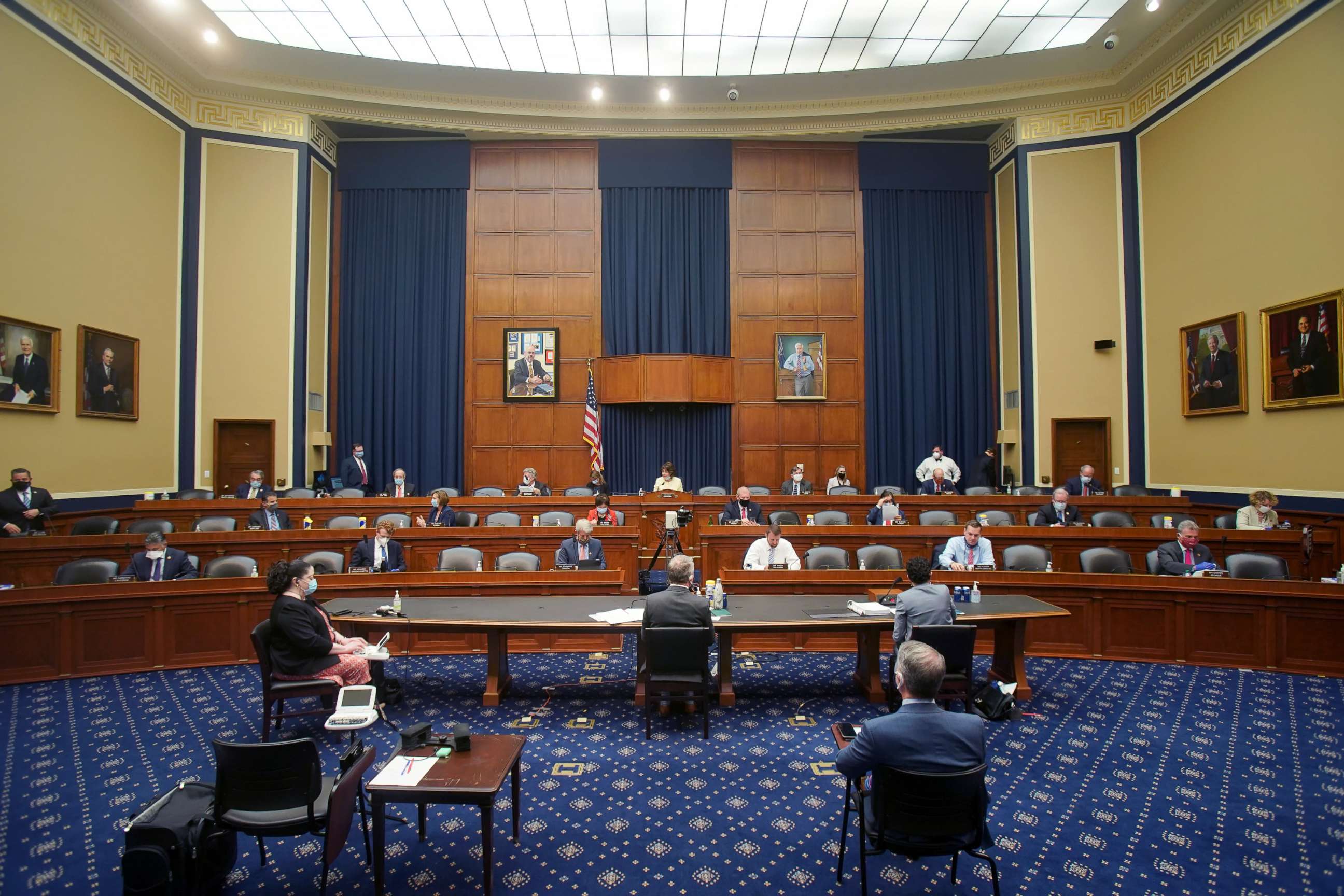
Bright testifies before House lawmakers, Democrat calls White House response 'inept, ineffective and extremely late'
Rep. Anna Eshoo, D-Calif., chair of the House Committee on Energy and Commerce Health Subcommittee, began Thursday's hearing by criticizing the Trump White House's response to the pandemic and calling Bright's complaint filed last week "one of the most specific and troubling whistleblower complaints I have ever seen."
"We are the greatest country on earth and yet we have the most cases and the most deaths from COVID-19 of any nation in the world," Eshoo said, wearing a blue face mask underneath her chin. "We must work together for the people of our country, who need us, so, so much, regardless of inconvenient truths."
She ended her opening marks by asking for a moment of silence for the more than 80,000 Americans who have lost their lives to the novel virus.
Bright was unfazed by the political infighting, sticking to his grave warning.
"Americans yearn to get back to work, to open their businesses and provide for their families. I get that. However, what we do must be done carefully and with guidance from the best scientific minds. Our window of opportunity is closing. If we fail to improve our response now based on science, I fear the pandemic will get worse and be prolonged," Bright said. "There will likely be a resurgence of COVID-19 this fall, and it will be greatly compounded by the challenges of seasonal influenza."
Ranking Member Rep. Greg Walden, R-Oregon, criticized Eshoo for holding a hearing with Bright while his whistleblower complaint is under investigation by the Office of Special Counsel, arguing that it's inappropriate, while Rep. Michael Burgess, R-Md., said it's unacceptable the subcommittee hasn't held other important COVID-19 hearings for two months.
Rick Bright, the ousted director of the federal agency tasked with developing a vaccine for the novel coronavirus, didn't seem phased by the parliamentary squabble.
The former head of the Biomedical Advanced Research and Development Authority (BARDA) filed a whistleblower complaint last week alleging he was removed from his post in retaliation for opposing the broad use of hydroxychloroquine, an anti-malarial drug frequently touted by President Trump, though it's still unproven effective as a coronavirus treatment.
ABC News' Katherine Faulders and Sarah Kolinovsky
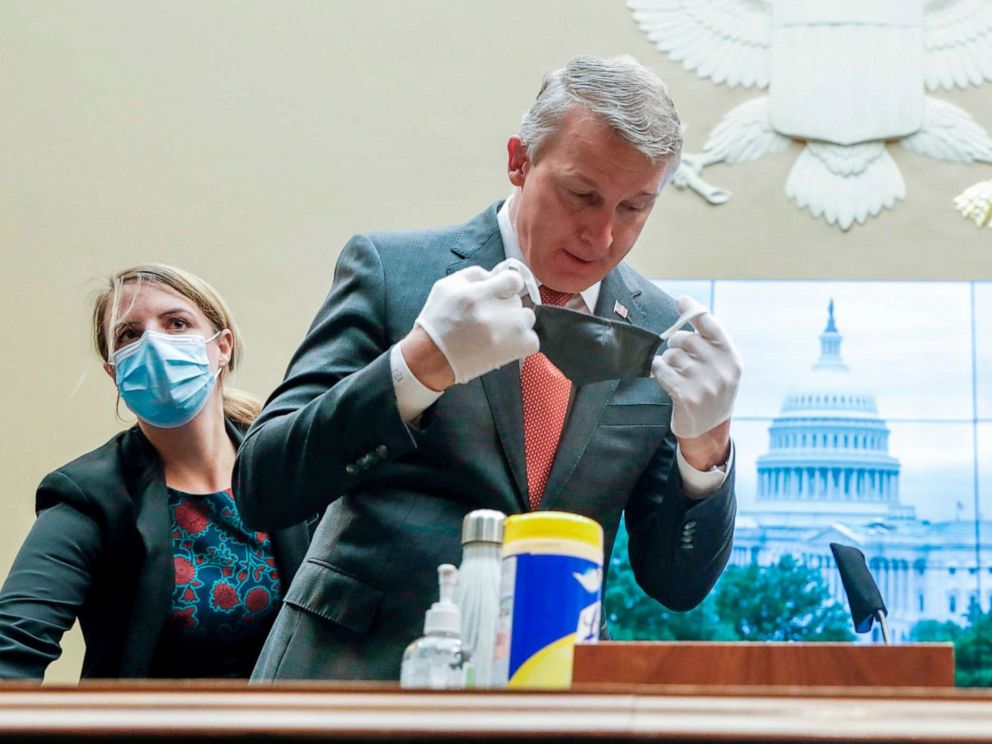
Department of Labor: Nearly 3 million jobless claims filed last week
More than 35 million people have filed for unemployment in the last two months, creating a 14.7% unemployment rate, the highest since the Great Depression.
Treasury Secretary Steve Mnuchin, when asked about Wednesday about concern from Dr. Anthony Fauci that some areas of the country are reopening prematurely, said, "there's also a risk if we wait too long."
"Dr. Fauci and I have spent a lot of time together on the task force. We have pretty much daily calls," Mnuchin told Fox News. " The president is absolutely concerned about the health of the American public, but there's also a risk if we wait too long. There is a risk of destroying the U.S. economy and the health impact that that creates."
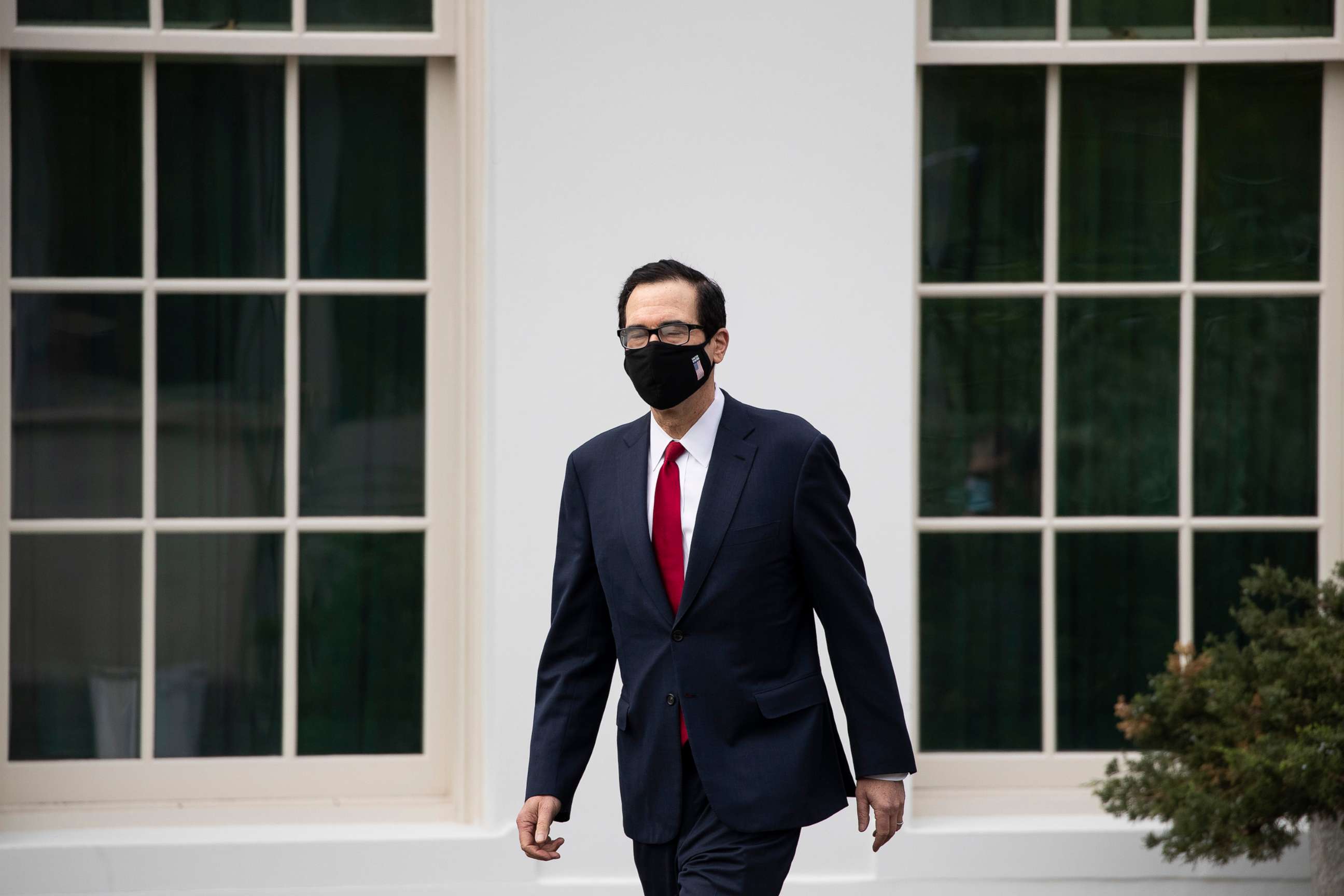
Last week alone, nearly 3 million people filed for unemployment insurance, according to a Department of Labor report released Thursday morning.
The unprecedented influx in jobless claims has created a number of issues for those in need of benefits as businesses across the country were forced to close their doors and Americans report ongoing struggles in the unemployment application process.
ABC News' Catherine Thorbecke contributed to this report.
What to know about the coronavirus:
- How it started and how to protect yourself: Coronavirus explained
- What to do if you have symptoms: Coronavirus symptoms
- Tracking the spread in the U.S. and worldwide: Coronavirus map
ABC’s Jordyn Phelps reports for ABC News Radio:

